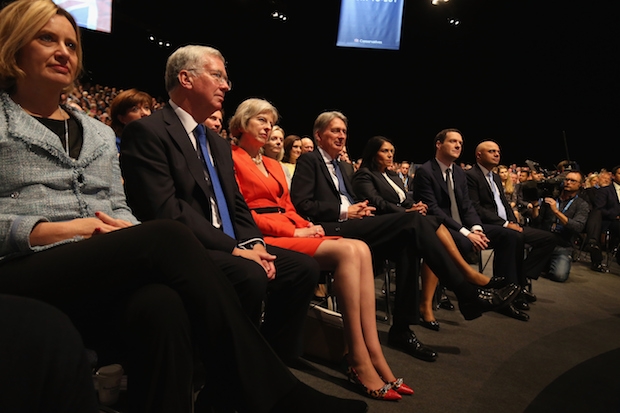Liam Fox’s new year party at the Carlton Club has become the traditional start to the Tory Party’s year. This year there were 11 Cabinet members including the Chancellor, Home Secretary, Defence Secretary, Business Secretary and Boris Johnson. I’d say that most of the Tory MPs there are ‘leavers’, who have this week been given permission to campaign freely against a ‘remain’ campaign expected to be led by the Prime Minister. So in this way, the old Tory wars are about to start again. I look at this in my Daily Telegraph column today.
This is not Eurosceptic vs Europhile. This will be a battle between Eurosceptics: the ones who think the EU can be beaten back from within, and the ones who want out altogether. But it won’t be long before this division is superimposed upon old ones: the modernisers vs the traditionalists, pragmatists vs the idealists, the wets vs dries. As leader David Cameron stopped the Tory wars, reigned in the daft sectarianism of the ‘modernisers’ and ended the cycle of reprisals which began after the fall of Thatcher. His great gamble, this time, is that he can lift the lid from the Tory wars for the EU referendum, then put it on again.
The Prime Minister’s position on Europe has been pretty consistent: he’d rather not discuss it because he knows the subject can bring nothing but trouble for his party. His decision to hold a referendum, taken almost exactly three years ago, was a way of taking Europe off the agenda for the rest of the last parliament and the general election campaign. And it worked. But the price he has to pay for those years of peace is actually going through with the referendum now.
The contest may be a lot more vicious than the Prime Minister imagines. He’ll campaign for ‘in’ with a heavy heart; he’s doing it for pragmatic reasons, and probably ones he doesn’t quite believe in himself. The ‘out’ campaign will campaign from full conviction, throwing every available piece of furniture against the other side. Jeremy Corbyn’s leadership of Labour will make the political violence worse. His uselessness has emboldened the ‘leavers’, who feel they can actually attack each other without significantly increasing the risk of Corbyn winning. As Matthew Parris argued in the Spectator, the greatest force unifying the Tory party has been the strength of – fear of – Labour. Without it, the Tories might get bored and fight each other.
Already, the language used by both sides is pretty vicious: some of the old sectarian modernisers see their ‘swivel-eyed’ enemies come alive in the Eurosceptic campaign. And some of the traditionalists see in the referendum a chance to end the Cameron era for good. Because, let’s remember, the ultimate battle will be that to succeed David Cameron and it will be decided by a hard core of Tory members with long memories. For many of them, the idea of political balance is having a picture of Thatcher on the wall and one of Jacques Delors on the dartboard.
The media attention, this week, has been on Labour’s botched reshuffle. But Cameron’s starting gun – and the consequent re-emergence of Tory wars – is the more significant development.







Comments